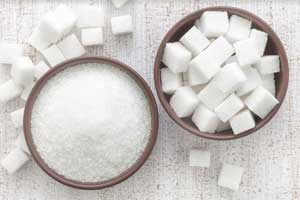- Home
- Editorial
- News
- Practice Guidelines
- Anesthesiology Guidelines
- Cancer Guidelines
- Cardiac Sciences Guidelines
- Critical Care Guidelines
- Dentistry Guidelines
- Dermatology Guidelines
- Diabetes and Endo Guidelines
- Diagnostics Guidelines
- ENT Guidelines
- Featured Practice Guidelines
- Gastroenterology Guidelines
- Geriatrics Guidelines
- Medicine Guidelines
- Nephrology Guidelines
- Neurosciences Guidelines
- Obs and Gynae Guidelines
- Ophthalmology Guidelines
- Orthopaedics Guidelines
- Paediatrics Guidelines
- Psychiatry Guidelines
- Pulmonology Guidelines
- Radiology Guidelines
- Surgery Guidelines
- Urology Guidelines
Sugar Improves Memory in Elderly and increases motivation

Sugar improves memory in Elderly and makes them more motivated to perform difficult tasks at full capacity – according to new research by the University of Warwick. The main findings of the study are-
- A small dose of sugar can improve memory in older adults, motivate them to work harder and puts them in a good mood when performing difficult tasks
- Researchers gave participants a drink containing a small amount of glucose and got them to perform memory tasks – found improvements in memory, mood and level of engagement
- Short-term energy in the form of raised blood sugar levels could be an important factor in older adults’ motivation to perform a task at their highest capacity
Led by PhD student Konstantinos Mantantzis, Professor Elizabeth Maylor and Dr Friederike Schlaghecken in Warwick's Department of Psychology, the study found that increasing blood sugar levels not only improves memory and performance, but makes older adults feel happier during a task.
The researchers gave young (aged 18-27) and older (aged 65-82) participants a drink containing a small amount of glucose, and got them to perform various memory tasks. Other participants were given a placebo – a drink containing artificial sweetener.
The researchers measured participants’ levels of engagement with the task, their memory score, mood, and their own perception of effort.
They found that increasing energy through a glucose drink can help both young and older adults to try harder compared to those who had the artificial sweetener. For young adults, that’s where it ended, though: glucose did not improve either their mood or their memory performance.
However, older adults who had a glucose drink showed significantly better memory and more positive mood compared to older adults who consumed the artificial sweetener.
Moreover, although objective measures of task engagement showed that older adults in the glucose group put more effort into the task than those who consumed the artificial sweetener, their own self-reports showed that they did not feel as if they had tried any harder.
The authors concluded that short-term energy availability in the form of raised blood sugar levels could be an important factor in older adults’ motivation to perform a task at their highest capacity.
Heightened motivation, in turn, could explain the fact that increased blood sugar levels also increase older adults’ sense of self-confidence, decrease self-perceptions of effort, and improve mood. However, more research is needed to disentangle these factors in order to fully understand how energy availability affects cognitive engagement, and to develop clear dietary guidelines for older adults.
Konstantinos Mantantzis, a PhD student from the University of Warwick’s Department of Psychology, commented:
“Over the years, studies have shown that actively engaging with difficult cognitive tasks is a prerequisite for the maintenance of cognitive health in older age. Therefore, the implications of uncovering the mechanisms that determine older adults’ levels of engagement cannot be understated.”
Dr Friederike Schlaghecken, from the University of Warwick’s Department of Psychology, commented:
“Our results bring us a step closer to understanding what motivates older adults to exert effort and finding ways of increasing their willingness to try hard even if a task seems impossible to perform.”

Disclaimer: This site is primarily intended for healthcare professionals. Any content/information on this website does not replace the advice of medical and/or health professionals and should not be construed as medical/diagnostic advice/endorsement or prescription. Use of this site is subject to our terms of use, privacy policy, advertisement policy. © 2020 Minerva Medical Treatment Pvt Ltd